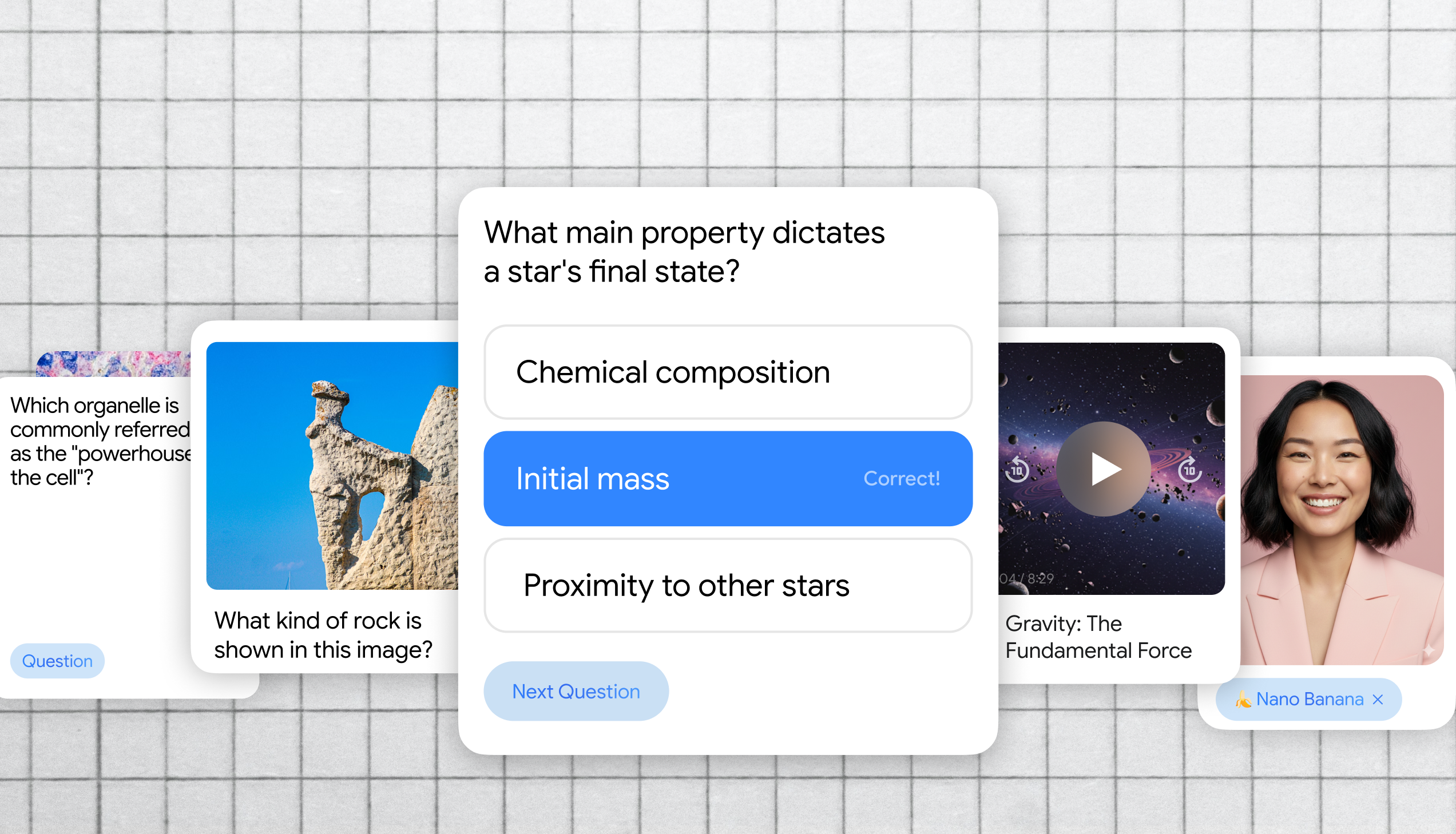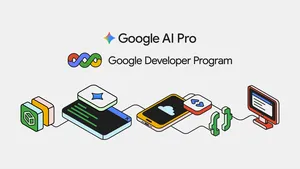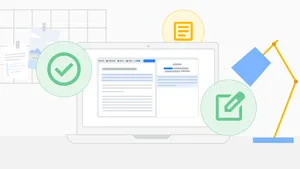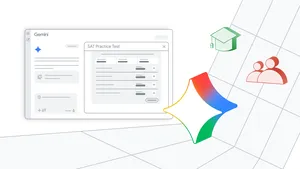An intro to AI, made for students
Adorable, operatic blobs. A global, online guessing game. Scribbles that transform into works of art. These may not sound like they’re part of a curriculum, but learning the basics of how artificial intelligence (AI) works doesn’t have to be complicated, super-technical or boring.
To celebrate Digital Learning Day, we’re releasing a new lesson from Applied Digital Skills, Google’s free, online, video-based curriculum (and part of the larger Grow with Google initiative). “Discover AI in Daily Life” was designed with middle and high school students in mind, and dives into how AI is built, and how it helps people every day.
AI for anyone — and everyone
“Twenty or 30 years ago, students might have learned basic typing skills in school,” says Dr. Patrick Gage Kelley, a Google Trust and Safety user experience researcher who co-created (and narrates) the “Discover AI in Daily Life” lesson. “Today, ‘AI literacy’ is a key skill. It's important that students everywhere, from all backgrounds, are given the opportunity to learn about AI.”
“Discover AI in Daily Life” begins with the basics. You’ll find simple, non-technical explanations of how a machine can “learn” from patterns in data, and why it’s important to train AI responsibly and avoid unfair bias.
First-hand experiences with AI
“By encouraging students to engage directly with everyday tools and experiment with them, they get a first-hand experience of the potential uses and limitations of AI,” says Dr. Annica Voneche, the lesson’s learning designer. “Those experiences can then be tied to a more theoretical explanation of the technology behind it, in a way that makes the often abstract concepts behind AI tangible.”
Guided by Google’s AI Principles, the lesson also explores why it’s important to develop AI systems responsibly. Developed with feedback from a student advisor and several middle- and high-school teachers, the lesson is intended for use in a wide range of courses, not just in computer science (CS) or technology classes.
“It's crucial for students, regardless of whether they are CS students or not, to understand why the responsible development of AI is important,” says Tammi Ramsey, a high school teacher who contributed feedback. “AI is becoming a widespread phenomenon. It’s part of our everyday lives.”
Whether taught in-person or remotely, teachers can use the lesson’s three- to six-minute videos as tools to introduce a variety of students to essential AI concepts. “We want students to learn how emerging technologies, like AI, work,” says Sue Tranchina, a teacher who contributed to the lesson. “So students become curious and inspired to not just use AI, but create it.”







